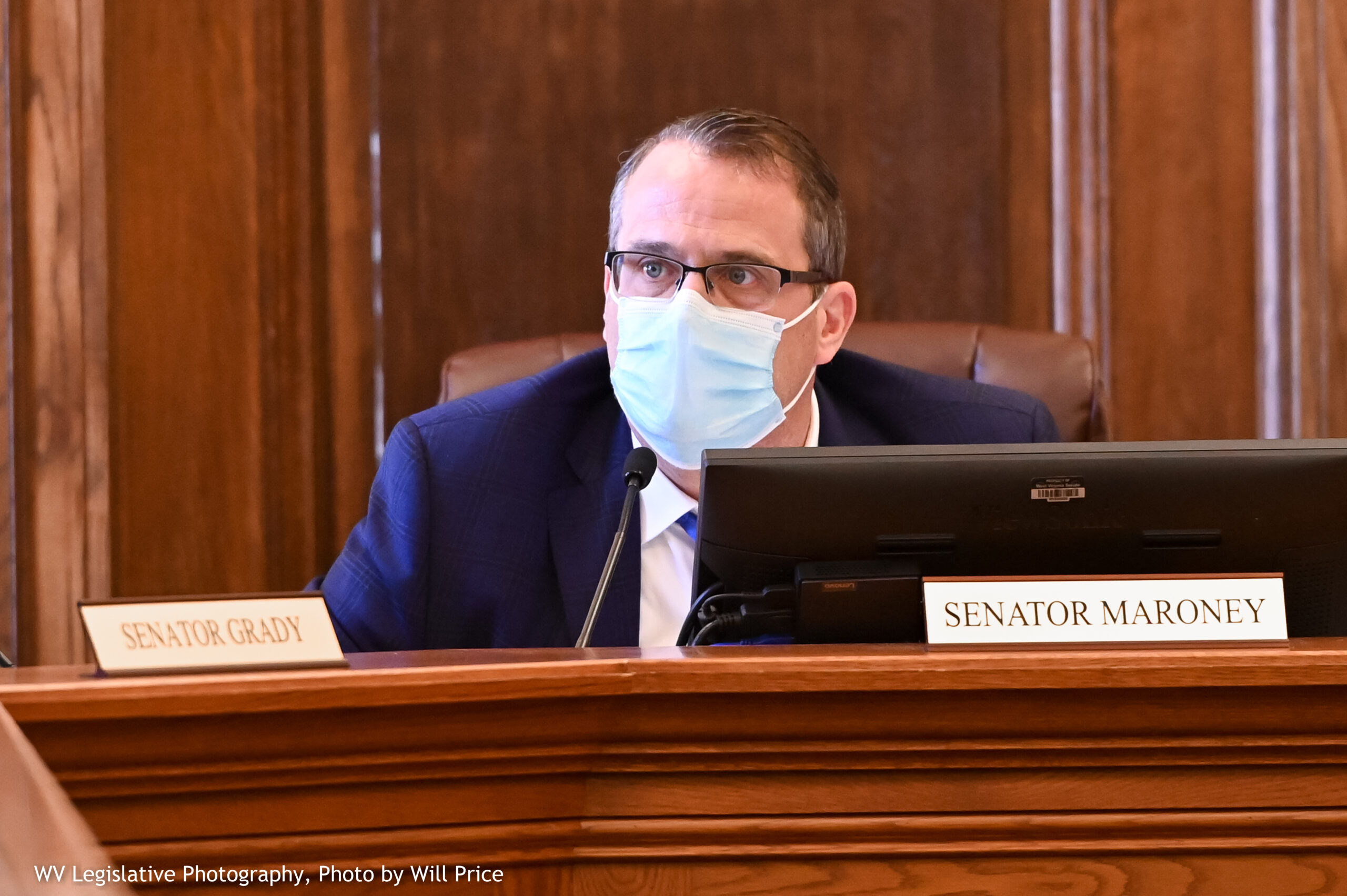MORGANTOWN – The Senate Health Committee spent more than three hours Thursday hashing over a bill to license and regulate needle-exchange programs across the state.
Bill lead sponsor Eric Tarr, R-Putnam, told the committee that the intent is to curb the needle litter problem that poses a danger to the communities hosting the programs.
But a long string of physicians testified that the problem is not as prevalent as Tarr believes, and the bill would only serve to harm or even shut down the programs and worsen the spread of HIV and hepatitis that the programs seek to limit.
After hours of testimony, the committee adjourned for the night and will resume work on the bill Tuesday.
The bill is SB 334. It wold require any needle-exchange program to be licensed by Office for Health Facility Licensure and Certification. An applicant would have to supply specific descriptions of services and plans for referrals to the varieties of care intravenous drug users require.
The bill would mandate needle tracking and a one-for-one exchange of needles distributed and returned, among many other provisions.
The program would have to obtain letters of recommendation from the local health officer and sheriff, and a county commissioner could rescind that letter, forcing the program to close.
Tarr, a doctor of physical therapy, is not a committee member but appeared to explain his bill. He talked about the growth of unscrupulous peer recovery homes that imported drug addicts, jamming people in, in order to draw in large sums of Medicaid money. Crime and needle littler mounted around these homes.
Some needle exchange clients, he said, have no desire to seek help. They sell their clean needles for profit. Some will re-use needles until the needles bend, then toss them wherever.
Jeremiah Samples, deputy secretary of the Department of Health and Human Resources, said that in 2019, about 1,371 million needles were distributed and 956,000 were returned – about 70%. In 2020, 1.36 million were distributed and 818,000 were returned, about 60%.
Judith Feinberg, a WVU professor and physician and chair if the HIV Medicine Association, said that the research shows needle-exchange programs do not increase crime, litter or drug use. In fact, exchange clients are five ties more likely to enter drug treatment and three times more likely to decrease drug use.
She was among the many who said there have been no recorded cases of HIV or hepatitis being transmitted to a community member through an accidental used needle stick. But when the Charleston-Kanahwa program closed, HIV cases doubled in 2018.
Dr. Kevin Yingling, chair of the Cabell-Huntington Health Department, said the theories expressed in the bill don’t line up with best practice. The licensure process is overly burdensome, and the one-for-one exchange mandate is not standard practice or endorsed by the CDC.
One practical effect of the bill will be to shift the health care costs of the clients to taxpayers, he said. A single HIV patient will cost more than $500,000 over the course of his or her illness.
He was one of several who said no federal or state funds go to buy the needles. Cabell-Huntington’s program has a task force that addresses needle litter concerns and does site cleanup sweeps.
Jenny Burns Riser, of Charleston, was the only witness who supported the bill. She said she is a recovering addict and alcoholic – not an intravenous user – who runs a business and has worked with other addicts. A needle exchange that pops up in a parking lot doesn’t offer connections to care for the user. The bill creates a structure of accountability for exchange programs.
Sen. Mike Azinger, R-Wood, tried to get another witness, Dr. Susan Bissett, president of the West Virginia Drug Intervention Institute, to concede that needle exchanges send the message that addiction is OK and help to feed clients’ addiction.
Bissett didn’t concede that, saying instead that it’s important to look at addiction as a disease, and the an exchange program as an entry point to build trust and get the client into recovery over time.
The last witness was Dr. Mike Kilkenny director of the Cabell-Huntington Health Department. He said syringe litter and syringe access are two different things. The bill will restrict the ability of the health department to provide sterile needles and that will send the community’s HIV outbreak out of control.
Commitee chair Mike Maroney, R-Marshall, said the bill will be open to amendment when the committee returns to it Tuesday.
Tweet @dbeardtdp




